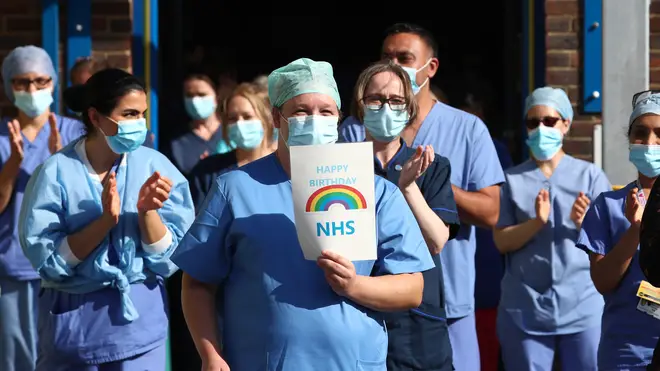
Paul Brand 7am - 10am
21 July 2020, 10:44

The UK was "slow" to put in place testing and measures to protect healthcare workers, an infectious diseases professor has told MPs.
Describing January and February as the "absolute critical" two months, Wellcome Trust director Professor Sir Jeremy Farrar said that the UK was "slow" to implement measures such as increased testing and personal protective equipment (PPE) for healthcare workers.
The committee also heard that research suggests "up to 45%" of healthcare workers were infected at the height of the Covid-19 pandemic.
"I think the lessons that Korea, Singapore, Vietnam, had learned from previous epidemics were well implemented, and they acted quicker," he told the Commons Health and Social Care Select Committee.
"And I think the UK was slow to put in place testing, to put in place extra clinical capacity, and to make sure that healthcare workers were protected with the PPE.
"And as a result subsequent events led to the epidemic taking off in a way in the UK, which was not the same as in Korea, Germany, or in Singapore, Vietnam."
Francis Crick Institute director Sir Paul Nurse told the committee that research by the institute found "up to 45%" of healthcare workers were infected at the height of the Covid-19 pandemic.
"My colleagues in the Crick contacted Downing Street in March, wrote to minister (Matt) Hancock in April, emphasising two main things," he told MPs.
"The importance of regular, systematic testing of all healthcare workers, including not only frontline doctors and nurses, support staff, ambulance drivers, other healthcare providers such as the care homes, GP surgeries, community nurses and the like. And these all needed to be tested.
"At the height of the pandemic, our own research, and of course that only backs up what's been done elsewhere, is that up to 45% of healthcare workers were infected.
"And they were infecting their colleagues, they were infecting patients, yet they weren't been tested systematically."

‘This is for the greater good’: LBC speaks to woman taking part in covid-19 vaccine trial
Sir Jeremy told the select committee that he regrets the Scientific Advisory Group for Emergencies (Sage) was not more "blunt" with its advice.
"If it was possible to ramp up testing, to have testing in place throughout January and February, as was the advice of WHO (World Health Organisation) at that time, and as what actually Germany and Korea and Singapore were able to do, and Vietnam, that would have been a better option, to ramp up the testing in February," he told MPs.
"It goes back to my comment about the eight weeks in January and February, when I think there was not enough urgency.
"And if I, again, now look back on my time on the Sage committee, I regret that Sage wasn't more blunt in its advice and wasn't more robust.
"But it didn't have a job in holding people to account, unfortunately, for delivery of interventions that were made."